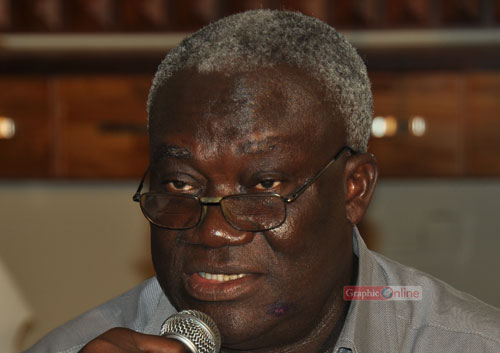Workers can’t afford new tariffs — TUC
 The Ghana Trades Union Congress (TUC) says the recent tariff increases announced by the Public Utilities Regulatory Commission (PURC) are too high for Ghanaian workers to pay.
The Ghana Trades Union Congress (TUC) says the recent tariff increases announced by the Public Utilities Regulatory Commission (PURC) are too high for Ghanaian workers to pay.
Outraged by the rate of increases, the TUC said, “It finds a near 80 per cent increase in electricity tariffs and over 50 per cent increase in water to be too high and well above the pocket of the ordinary Ghanaian.”
A statement issued by the TUC at the end of its Steering Committee meeting on Monday night indicated that the magnitude of the increases could only be described “as insensitive and a stab in the back of the Ghanaian”.
On Wednesday, September 25, the PURC announced a 78.9 per cent increment in electricity and 52 per cent for water, effective October 1, this year.
The increments fall short of the 166 per cent and 112 per cent requested by the electricity and water providers, respectively.
There has not been any major adjustment in water and electricity tariffs since June 1, 2010. However, the automatic adjustment formula was implemented.
The TUC said during deliberations at its Steering Committee meeting, the issue of the very high increases in electricity and water tariffs was discussed.
It acknowledged that given the changes that had occurred in the fundamentals of the utility tariff structure, tariff adjustments could not be avoided.
It, however, said those changes, which included the cut-off of the gas from the West African Gas Pipeline and the massive depreciation suffered by the cedi, ought to have been addressed by the PURC through regular and gradual upward adjustment of tariffs.
“But as has been the trend, for purposes of political expediency, the PURC, acting on the promptings of the government, failed to apply the automatic adjustment formula agreed on by all stakeholders. Now the PURC and the government are calling on Ghanaians to foot the bill that has been occasioned by a political decision,” the TUC stated.
The statement expressed concern about the impact of tariff increases on industry and businesses as those sectors were already saddled with too many constraints and added that the least the government could do was to compound their problems.
“Already, some industrial entities are being over-charged, making them uncompetitive. The committee reiterated the long-held view of the TUC that at this level of national development some subsidies are needed for some groups of Ghanaians who cannot afford electricity and water at the so-called realistic rate,” it advised.
The statement, therefore, called on the government and the PURC to hold on to the implementation of the tariff adjustment, indicating that “it is morally wrong for government to award 10 per cent increase in salaries, only to turn round and impose such high increases in utility tariffs.
“In addition, for the fourth time this year government has increased the price of fuel cumulatively over 30 per cent. Given the noisy nature of utility tariffs and fuel prices, workers and, indeed, Ghanaians are already reeling from the harsh economic conditions. The committee and the TUC are proposing a dialogue, not only on tariffs but, equally important, on the entire energy and water situation in the country,” it said.
On the operations and the management of the utility companies, it said, the committee concluded that while tariff adjustment could potentially form part of measures to revamp the energy sector, the PURC, the utility companies and government had strangely avoided a discussion of the many management challenges that faced the utility sector in Ghana.
It said a large part of the apparent management challenges was political and stressed that Ghanaians had been made to pay for the inefficiencies of the utility companies in the past few years.
“Even more disgusting is that, every round of tariff adjustments has been formulated on the premise that the adjustments were needed to enable the utility companies to deliver quality and efficient service. Thus far, such promises have turned to be a hoax, an indication that there are other more important issues affecting the provision of utilities than the supposedly low tariffs,” the TUC said
It called on the government to invest in energy and water sector infrastructure and ensure that those basic necessities were available before it talked about so-called realistic tariffs, stressing that “tariffs, no matter how high they are pegged, cannot and should not be substituted for the core investments in energy and water the government ought to be making”.
Daily Graphic/Ghana